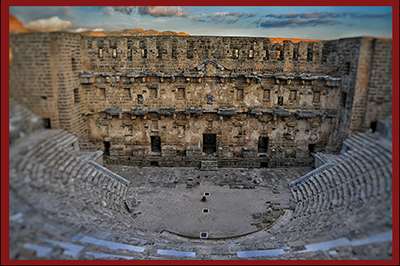A Bachelor of Arts in Classics will acquaint students with the major languages, the chief literary figures, and the cultures of ancient Greece and Rome.
In addition to their study of these ancient civilizations, Classics majors also learn about the important role that the Classical tradition has played in shaping literature, arts, and culture since antiquity. Through its focus on the classical world, the program gives particular attention to the skills necessary for success in the information age: oral and written communication, independent and critical thinking, and the management and evaluation of information.
Students also have the opportunity to participate in archaeological excavations at various sites in the Mediterranean region under the auspices of the Center for Classical Archaeology and Civilizations, which is housed in the Department of Classics and Letters.
Recent graduates have pursued advanced degrees in Classics at the University of Iowa, the University of Virginia, the University of Missouri, the University of Buffalo, and Cambridge University. The Classics major also provides excellent preparation for law, medicine, and religious ministry. Our graduates have followed a staggering variety of career paths.


